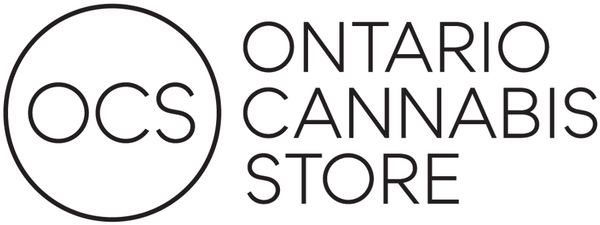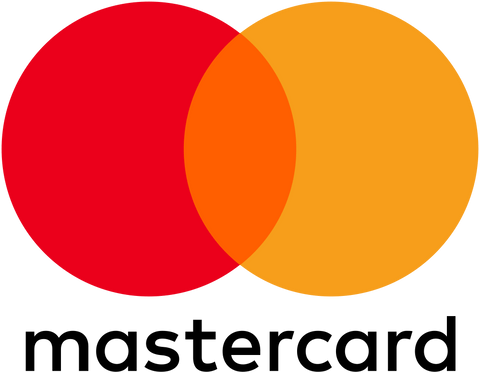Choosing Cannabis Products
In Session: These Game-Changing Indigenous Cannabis Companies Are Helping Shape the Future of the Legal Cannabis Industry
Meet Seven Leaf and Red Market Brand — two new Indigenous cannabis companies pushing economic reconciliation forward.
Great news: there is now a growing number of Indigenous owned, operated or affiliated Licensed Producers and brands creating top-tier cannabis products for both the medical and recreational market.
This is exciting for Canadian cannabis enthusiasts, not just because of the addition of interesting new products in the marketplace, but because every purchase made from an Indigenous-operated business is a concrete act towards economic reconciliation.
This fall, Ontario welcomed two new Indigenous cannabis companies to the legal marketplace: Seven Leaf and Red Market Brand.
Seven Leaf

Located in Akwesasne, a Mohawk First Nation territory on Cornwall Island, Ontario, Seven Leaf is a 100 percent Indigenous-owned and -operated Licensed Producer. Every employee is from within the Akwesasne community.
Seven Leaf established itself back in 2013 under the former Access to Cannabis for Medical Purposes regulations, which was folded into the Cannabis Act. “We were just concentrating on giving medicine to our people,” explains general manager Dianna Tarbell of the company’s early days. But within a few short years, she says, when the federal government hinted at legalization for recreational cannabis, Seven Leaf saw an opportunity to bring safe, tested recreational products to its community.
“We wanted to do it right. We wanted to create a strong growing operation. We wanted to employ community people locally and we wanted to establish a great brand and enter the [legal] market.”

And so they did: In the fall of 2018, Seven Leaf became the first Health Canada–licensed cannabis-growing facility on First Nations territory. In keeping with the ancient Haudenosaunee (a multi-nation Indigenous confederacy) value of the Seventh Generation, which looks to the wisdom of past generations to provide for seven future generations, the founders of Seven Leaf first had to gain the support of community members and Elders before moving forward as a business.
Human resources manager Meghan Barnes says when they presented their idea, the community was excited, but some members voiced concerns stemming from the stigma of cannabis. But today, with 38 full-time employees and an open door to the community, some of their former skeptics are now their best supporters.
Beyond the community, the stigma may have been about more than just the product itself. There were assumptions about Seven Leaf that other Producers may not necessarily face. Says Tarbell, “I think that people had the idea that because we’re on a First Nation territory that we were going to be skirting some regulations or controls. But when we bring people on tour here, they soon realize this is above reproach; that we go to the nth degree to make sure our product is safe.”
And that it’s good. The company launched in market in October with strong and flavourful hybrid strains — Island Cherry (Kawehnoke Eri'ko:wa in Mohawk), Island Sugar (Kiwanuka Otsi’kheta) and Milk & Cookiez (Onòn:ta & Karé:t) — under its Sev7n brand. Seven Leaf is now actively on a pheno hunt, identifying the finest cultivars from a variety of strains grown in-house in Akwesasne to find the very best ones to bring to market next.

Sev7n isn’t the only brand under the Seven Leaf umbrella. Launching in 2022 is Sovereign, a brand echoing the enduring strength of the Mohawk nation and a nod to Indigenous sovereignty. Sovereign will be a premium craft brand, with a line-up of hand-trimmed and hang-dried flower packaged in eco-friendly glass jars.
As evidenced by the brand and product monikers (the English names were translated into Mohawk by a local Akwesasne teacher), Mohawk identity is a pillar of the company and something the team is eager to share with consumers. Not sure how to pronounce Kawehnoke Eri'ko:wa? Seven Leaf has created audio clips to share with budtenders so that they can accurately discuss the product with customers.
Similarly, a strong tenet to Seven Leaf’s business philosophy is looking after their community, which is why they launched the Strong Roots North Charitable Foundation. Three percent of sales goes into the charity to fund projects for Indigenous youth and elders. Past projects include education scholarships, paved accessibility entrances to service buildings, and 700 lacrosse sticks for youth in the Akwesasne territory, where the sport is a major pastime.
For Tarbell, the business and the community are one and the same. “It’s not an option to sell the company and go somewhere else,” she says. “This is our community. This is it. We’re here to stay.”
Red Market Brand

Red Market Brand co-founders Christian Sinclair (left) and Isadore Day (right) with Chippewas of Rama First Nation Chief Ted Williams
A new entrant to the legal cannabis marketplace, Red Market Brand is already making a name for itself; one of its first launches is Chi Miigwetch, a single-flower 14g cola that’s hard to miss. The name, an Ojibwe phrase meaning “big thank you,” is a celebration of the company’s identity.
“It’s a big thank you because it’s a big bud!” says Red Market Brand co-founder Christian Sinclair, former Onekanew (Chief) at Opaskwayak Cree Nation of northern Manitoba. “It’s having fun with the product while using our language revitalization, and it keeps the product focus on our Indigenous identity.”
Red Market Brand is a 100% First Nation–owned and –operated cannabis business, founded in partnership with Royal City Cannabis (an Entourage Health Corp. brand). The company, which formally launched in June 2021, isn’t a Producer; Sinclair and Isadore Day, co-founder and CEO, envision it as a platform that will partner with Producers from across Canada and purposefully reinvest in First Nation communities. Both Sinclair and Day have pledged to reinvest 25% of their personal profits from Red Market Brand back into First Nation wealth creation.

Long term, Red Market Brand’s goal is to create a national network of Health Canada–approved First Nations Producers and products, accessible to all Canadian adult consumers, and to help Indigenous-owned cannabis businesses navigate the federal system and speed up economic reconciliation in the process.
“It’s widening the lane,” says Day, the former Regional Chief of Ontario, Lake Huron Region Grand Chief and Vice Chair of the North Shore Tribal Council. He spent years trying to mobilize regional chiefs to make regulated cannabis an economic opportunity for First Nation communities. “It’s bringing First Nation economic leadership into the cannabis industry mix. We want to be able to create opportunity in a very dignified way, where we gain respect in the industry because we’re prepared to make a difference.”

Key to that plan, of course, is high-quality cannabis. In addition to the Chi Miigwetch cola, Red Market Brand offerings include: Nishin (meaning “finest, best, good”), a gassy indica-dominant hybrid; Niichii (meaning “my friend”), a fruit-flavoured hybrid; and Miigwetch (meaning “thank you”), a 3.5g offering of the same indica-dominant flower that the Chi Miigwetch cola comes from. All three strains, grown by Royal City Cannabis, are OCS craft cannabis products. They'll eventually become part of Red Market brand’s First Nations seed-to-sale supply chain.
“Red Market Brand is saying ‘We’re a First Nations cannabis company’. We’re not looking to become a mass producer, we’re looking at the full supply chain,” says Sinclair, who just a few years ago pulled his community from the brink of bankruptcy by investing in regulated cannabis retail, creating economic well-being and turning the community into a major cannabis industry player. “I’ve always said from day one we have to stay inside the legal framework, and we’ve got to find a niche that will allow us to be able to claim that space in a legal context.”







